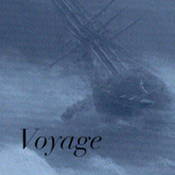
Overview
Synopsis
Alexander Bakunin has made an idyllic life in the Russian countryside. His four beautiful daughters are on their way to successful marriages, and his son, Michael, has joined the prestigious Russian cavalry. But, when Michael returns home from St. Petersburg with a newfound interest in philosophy, it signals an abrupt turn in the fortunes of the Bakunin family: Michael’s over-attachment to his sisters, his radical ideas, and his group of socialist revolutionary friends infiltrate Alexander’s home, and the family begins to unravel.
Stoppard’s sprawling family drama jumps back and forth through time and place, giving audiences snapshots of the day-to-day struggles of the Bakunin family, while only alluding to the devastating highs and lows. The first act of Voyage focuses primarily on the experiences of the Bakunin sisters, while the second act moves the narrative to the Moscow revolutionaries, with Michael as the conduit between the two worlds. Both acts span the same 11-year period, between 1833 and 1844.
Voyage is the first of Stoppard’s Coast of Utopia trilogy (Voyage, Shipwreck and Salvage), which all take place in pre-revolution Russia. With a total run-time of over nine hours and seventy characters, the Coast of Utopia trilogy is a daunting theatrical cycle, and has been performed to great acclaim throughout the USA and Russia. In 2007, the play and its performers won a total of seven Tony awards.
Show Information
Context
The Coast of Utopia trilogy (Voyage, Shipwreck and Salvage) is Tom Stoppard's epic re-telling of the stories of the Russian radicals who wrote, philosophized and inspired revolution between 1833 and 1868. The plays are based on extensive research into the period, and most of the more than 70 characters are based on actual historical figures,
to read the context for The Coast of Utopia: Voyage and to unlock other amazing theatre resources!Plot
ACT ONE
Voyage begins on the Bakunin family estate in 1833, in the Russian town of Premukhino. Alexander Bakunin, his wife Varvara, and their daughters Liubov, Varenka, Tatiana, and Alexandra, are entertaining a guest: Baron Renne. Alexander’s daughters have an English governess, and Alexander urges his daughters to demonstrate their English for the Baron. The Baron is engaged to Liubov, Alexander’s eldest daughter. The two seem to be a good match, but Alexander jokes that Renne - at age
to read the plot for The Coast of Utopia: Voyage and to unlock other amazing theatre resources!Characters
| Name | Part Size | Gender | Vocal Part |
|---|---|---|---|
|
Lead |
Male |
Non-singer |
|
|
Lead |
Female |
Non-singer |
|
|
Lead |
Female |
Non-singer |
|
|
Lead |
Male |
Non-singer |
|
|
Lead |
Male |
Non-singer |
|
|
Supporting |
Female |
Non-singer |
|
|
Supporting |
Female |
Non-singer |
|
|
Supporting |
Female |
Non-singer |
|
|
Supporting |
Male |
Non-singer |
|
|
Supporting |
Male |
Non-singer |
|
|
Featured |
Female |
Non-singer |
|
|
Featured |
Male |
Non-singer |
|
|
Featured |
Male |
Non-singer |
|
|
Featured |
Male |
Non-singer |
|
|
Featured |
Male |
Non-singer |
|
|
Featured |
Male |
Non-singer |
|
|
Featured |
Male |
Non-singer |
|
|
Featured |
Male |
Non-singer |
|
|
Featured |
Female |
Non-singer |
|
|
Featured |
Female |
Non-singer |
|
|
Featured |
Male |
Non-singer |
|
|
Featured |
Male |
Non-singer |
|
|
Featured |
Female |
Non-singer |
|
|
Featured |
Male |
Non-singer |
|
|
Featured |
Male |
Non-singer |
|
|
Featured |
Male |
Silent |
|
|
Ensemble |
Either Gender |
Silent |
Songs
A song with an asterisk (*) before the title indicates a dance number; a character listed in a song with an asterisk (*) by the character's name indicates that the character exclusively serves as a dancer in this song, which is sung by other characters.
Monologues
Scenes
Key Terms
Sorry! We do not currently have terms for this guide.
Videos
Quizzes
Themes, Symbols & Motifs
Sorry! We do not currently have learning modules for this guide.
Quote Analysis
Sorry! We do not currently have learning modules for this guide.
